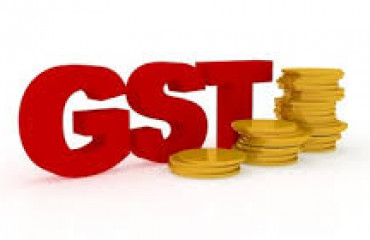
BENGALURU : The National Anti-profiteering Authority (NAA) may take a year and a half to decide on pending cases at its current pace, even as the Goods and Services Tax Council (GST) is yet to decide on folding the agency into the Competition Commission of India (CCI). If the authority is to decide on these cases on its own, it may need another one-year extension once its term ends on 30 November.
BENGALURU : The National Anti-profiteering Authority (NAA) may take a year and a half to decide on pending cases at its current pace, even as the Goods and Services Tax Council (GST) is yet to decide on folding the agency into the Competition Commission of India (CCI). If the authority is to decide on these cases on its own, it may need another one-year extension once its term ends on 30 November.
The authority, which was hamstrung for nearly a year because of the lack of quorum, sprang to action in April after the government appointed two members to it.
The NAA issued 36 orders in the June quarter, including one against cosmetics giant L'Oreal, which was found guilty of profiteering to the extent of ₹186 crore.
NAA comprises four technical members and a chairman. It now has only three technical members, with one of them holding additional charge of chairman.
The two-day GST Council meeting that started on Tuesday in Chandigarh may do a status check of the 216 profiteering cases before NAA and decide on its future course. The huge pendency suggests that NAA may get an extension, according to a state government official who spoke on the condition of anonymity.
"Benefits of input tax credit should be passed on to the recipient by way of commensurate reduction in prices," according to anti-profiteering rules under GST.
The anti-profiteering mechanism has three stages. The first is a state-level committee that screens local complaints. The second is a standing committee for national-level complaints, while the third is an investigation by the directorate general of NAA.
"The NAA hopes to issue at least 40 orders in the next quarter. That is more than one decision every three days. However, even at that pace, it will take another year-and-a-half from now to dispose these of," a Union government official said on condition of anonymity.
In September, the GST Council decided to explore bringing anti-profiteering cases under the CCI, the country's monopoly watchdog. However, a final decision on this is awaited. M.S. Mani, partner, Deloitte India said the NAA should get more time to complete pending cases, as a new authority may take time to understand the nuances of these cases. "In the absence of a common cost methodology to determine the existence or otherwise of profiteering, it would be more difficult for a new body to deal with these matters," said Mani.
"It is expected that NAA may get an extension, but the moot point remains that the industry struggles in the absence of any prescribed methodology to determine the quantum of profiteering," said Abhishek A. Rastogi, partner, Khaitan & Co.
Merging with CCI may not resolve the fundamental dispute and aspects related to constitutionality.
"As a corollary, any such merger will be meaningless unless there is a robust framework to determine the quantum of profiteering for diverse sectors under investigation, based on economic realities and in light of the statutory provisions," Rastogi said.
Abhishek Jain, partner, indirect tax, KPMG in India, expects some discussions in the GST Council about NAA getting subsumed in CCI by the end of its tenure in November.
"Whether all pending cases will be disposed of by November 2022 or some will be forwarded to CCI is something that needs to be seen. It is noteworthy that this change in the governing body will not affect the challenge posed about the constitutional validity of the anti-profiteering provisions in various high courts," Jain said.
There are 140 writ petitions pending against NAA in various courts. However, now the courts have set aside any NAA order so far.
Pratik Jain, partner, Price Waterhouse & Co LLP noted that with five years of GST, there should be no anti-profiteering provisions and market forces should decide pricing.
"It's already been five years since GST was implemented. A lot would have changed since then in terms of input costs for businesses and the overall economic situation. Ideally, we should not have anti-profiteering provisions now and let the market forces decide the pricing," said Jain.
At the minimum, there should only be limited applicability in future when the GST rate is reduced on a particular product or service and that too for a limited time, "say three months from the change", he said.
